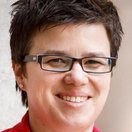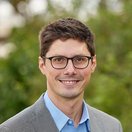Our Community
A vibrant network of researchers and partners working together to address environmental and climate challenges through collaboration, dialogue, and shared purpose.
Members | Become a Member | Alumni Network | Visiting Chairs
Members
Currently the ECH community is comprised of 70 researchers across 13 faculties of the University of Vienna. Their multifaceted research interests range from climate science and ecology to sociology, economics, and philosophy.



































































Mathew White
Mathew White is Senior Scientist at the Vienna CogSciHub
Main research areas:
Behaviours and Behaviour Change, Benefits of Exposure to Natural Environments for Health and Wellbeing, Pro-Environmental Attitudes, Public Understanding of Anthropogenic and Natural Environmental Hazards
Website


Want to Become a Member?
Are you a researcher at the University of Vienna and interested in joining the ECH? We offer memberships for both senior and early career scientists at the postdoctoral level. We do currently not accept PhD researchers as members.
Application for Senior-Level Researchers
Applications for Senior-Level Membership may be submitted throughout the year by any professor at the University of Vienna, from tenure-track to full professor. Senior-level memberships are granted for three-year terms, renewable.
Learn more about the application process:
Application for Early Career Researchers
Researchers at the postdoctoral and senior scientist level may apply for membership during annual calls. Memberships are granted on a biennial basis, renewable. Please watch out for the next call.
Our Alumni
Science thrives on change. That is why we, as a research hub, sometimes have to say goodbye to members. But science also thrives on collaboration – which is why we are pleased to be able to establish new links with other universities and research institutions when our members move on. As a central point of contact for interdisciplinary environmental and climate research, the ECH is expanding its international network and enabling new research collaborations.

Ayansina Ayanlade
Ayansina Ayanlade was Postdoctoral Researcher at the Department of Geography and Regional Research
Website

Lukas Brunner
Lukas Brunner was Senior Scientist at the Department of Meteorology and Geophysics
Website

Palak Chaturvedi
Palak Chaturvedi is Group Leader in the Crops in a Changing Climate Environment Group
Website


Kimberly Crystal Doell
Kimberly Crystal Doell was Senior Scientist at the Department of Cognition, Emotion, and Methods in Psychology
Website






Visiting Chairs
The ECH offers an exciting opportunity for members of the ECH to apply for incoming international professorships at the University of Vienna. These „Visiting Chairs for Environment and Climate“ aim to advance the objectives of the Environment and Climate Research Hub while fostering interdisciplinary collaboration on research.
ECH Members are encouraged to invite high-level Visiting Chairs on a rolling basis throughout the year. If you like to invite a Chair, please follow the instructions outlined in the Member Area.
2024
Frank Adloff is a Professor of Sociology at the University of Hamburg and is the co-director of the Humanities Centre for Advanced Studies “Futures of Sustainability”. He previously held professorships at the FAU Erlangen-Nuremberg and the FU Berlin. He was Theodor Heuss Lecturer at the New School for Social Research (NYC), Max Weber Fellow at the EUI (Florence) and Senior Research Fellow at Centre for Global Cooperation Research (Duisburg).
His research interests include social theory, conviviality, sustainability/transformation, society and nature, and civil society. At the ECH, Frank Adloff will address the question of what role the social sciences can and should play in the social-ecological transformation.

Paolo Graziano is Professor of Political Science at the University of Padua and a research fellow at the European Social Observatory in Brussels. His academic career includes visiting fellowships at several prestigious institutions, including Cornell University, the University of Cambridge, the University of Oxford, Sciences Po Paris, the University of Melbourne, the University of Washington, the European University Institute, Roskilde University, the University of Amsterdam, and the University of California Berkeley. Since 2018, he has played an important role as co-editor of Governance and was president of the APSA Conference Group on Italian Politics (CONGRIPS) from 2019 to 2020. Graziano's research, which focuses on European integration, public policy in Europe, social movements and populist political groups, has been published in a variety of academic journals or is in preparation.

Lee Slater is a Distinguished Professor and Henry Rutgers Professor in Geophysics at Rutgers University Newark. He is an expert in near-surface geophysics and hydrogeophysics. Slater has published over 165 articles in peer-reviewed international hydrogeology and geophysics journals and has led numerous research projects and technology demonstrations backed by various U.S. government agencies including the Department of Defense, Department of Energy, Department of Agriculture, National Parks Service, and the National Science Foundation.He holds leadership positions such as the Chair of the Near Surface Geophysics Focus Group and the Hydrogeophysics Technical Committee of the American Geophysical Union (AGU), as well as President of the Environmental and Engineering Geophysical Society (EEGS). Currently, he is an Associate Editor for Water Resources Research (WRR) and has recently co-authored an advanced textbook on resistivity and induced polarization methods for near-surface Earth studies.

Professor Hannes Bergthaller is a leading expert in the environmental humanities, eco-criticism, and the Anthropocene as an issue for the humanities. Having lived and taught in Taiwan für 20 years, he is also an excellent expert of discussions around sustainability and climate politicy in a comparison between Asia and Europe/US. My co-author for „The Anthropocene – Key issues for the Humanities“. Hannes holds a Ph.D in American Literature from the University of Bonn. He is a distinguished Professor at the National Taiwan Normal University (NTNU). He publishes on „Climate and the New Materialisms“, „Ecocriticism, Biopolitics and Ecological Immunity“ and won research projects on „The Nature of Modernity: Social Systems, Theory and the Environmental Humanities“.

Thomas Jahn is co-founder of ISOE and was scientific director and spokesperson of the institute’s executive board until March 2021. He is part of the research unit Transdisciplinary Methods and Concepts, which he headed until 2015. Amongst other areas his research focusses on societal relations to nature, transdisciplinary methods and concepts, and social-ecological science research. At the Senckenberg Biodiversity and Climate Research Centre (SBiK-F) Thomas Jahn was the spokesperson of the Research Activity “Ecosystem Services and Climate”. He studied sociology, political science, German studies, and history at the University of Freiburg and Goethe University Frankfurt. At the latter he received his doctorate in 1989 with a thesis on “Crisis as a Mode of Societal Experience: Outline of a Social-Ecological Conception of Society”.

Tobias Haas studied economics and political science at the FU Berlin and the University of Copenhagen (Denmark). In his doctorate in Tübingen he dealt with the controversies about the energy transition in Germany, Spain and in the European context. As a post-doc at the FU Berlin, he worked on the mobility transition in Germany and the EU. In the summer of 2018, he was a fellow at the Kolleg Postwachstumsgesellschaften at the Friedrich-Schiller-University in Jena and has developed ideas on the extent to which post-growth debates can inspire the mobility transition. From 2018 to May 2022, he worked as a research associate at the IASS in Potsdam in the project „Social Transformation and Policy Advice in Lusatia“ and since April 2022 at the RIFS in the project Carbon Dioxide Removal Synthesis and Transfer Project within the research group „Planetary Geopolitics and Geoengineering“. His research focuses on the intersection of political economy and political ecology with an emphasis on climate change.

2023
Professor Lora Fleming is a co-founder of the European Centre for Environment and Human Health and Emerita Professor/Chair of oceans, epidemiology and human health at the University of Exeter Medical School and Emerita Professor at the University of Miami Schools of Medicine and Marine Sciences. She is a board certified occupational and environmental health physician and epidemiologist with over 30 years of experience and expertise in environment and occupational exposures and human health research and training. Professor Fleming is involved in research, training and other activities in the new interdisciplinary metadiscipline of oceans and human health. She is the recipient of the 2013 Edouard Delcroix Prize and the 2015 Bruun Medal of the International Oceanographic Commission (IOC), for her research and other activities in Oceans and Human Health. She co-led the Ocean Panel Blue Paper on Oceans and Human Health and led the editorial group for the Oceans and Human Health.

